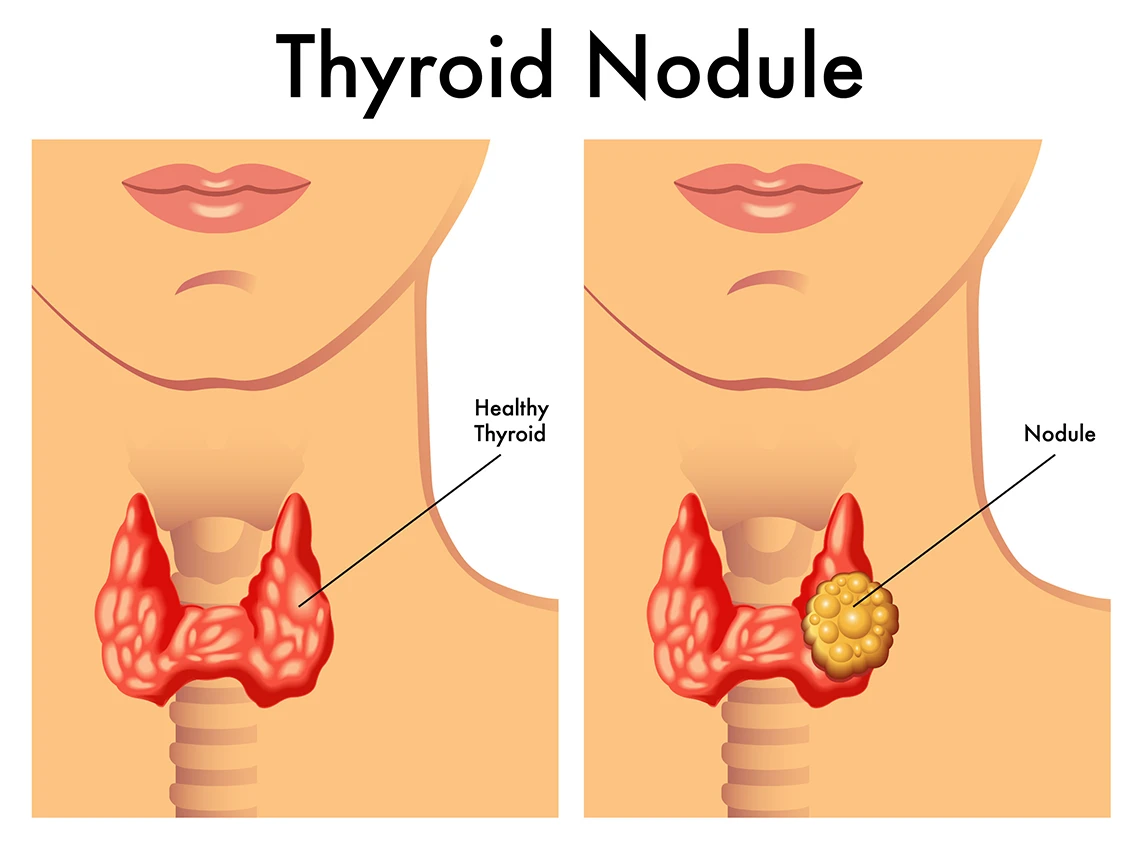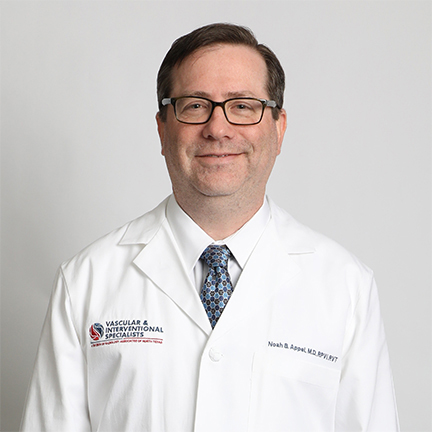A minimally invasive treatment option for thyroid nodules
or call us at 214-245-7017
What are thyroid nodules?
Thyroid nodules are lumps that form within a small gland found between the breastbone and the base of the neck called the thyroid. Depending on the type of nodule, these lumps can be solid or filled with liquid. Most thyroid nodules are harmless and only a small percent are cancerous.

What symptoms are caused by thyroid nodules?
Thyroid nodules can be hard to detect and often are not found until a doctor discovers one during a routine medical checkup. However, sometimes nodules can grow large enough to:
- Be Seen
- Be felt
- Press against the windpipe or esophagus, leading to shortness of breath, difficulty swallowing, or the feeling of a “lump in the throat” (termed “globus sensation”).
Some nodules, referred to as “autonomously functioning” nodules, can affect the production of a hormone produced in the thyroid called thyroxine. Hyperthyroidism occurs when too much thyroxine is produced and hypothyroidism occurs when not enough thyroxine is produced. If you are experiencing the following symptoms, it is best to consult your primary healthcare provider or endocrinologist.
In cases where thyroid nodules have led to hyperthyroidism, the following symptoms may occur:
- Unexplained weight loss
- Increased sweating
- Tremoring
- Nervousness
- Increased or irregular heartbeat
- Muscle weakness
- Trouble sleeping
In cases where thyroid nodules have led to hypothyroidism, the following symptoms may occur:
- Feeling cold
- Frequently tired
- Dry skin
- Memory issues
- Depression
- Constipation
What is Radiofrequency Ablation (RFA)?
RFA is an innovative, FDA-approved alternative to surgery for some patients with benign, solid (or mostly solid) thyroid nodules.
During this minimally-invasive outpatient procedure, a small needle electrode is guided to the thyroid nodule via ultrasound imaging. Once in the nodule, the needle generates heat that kills the thyroid nodule cells to reduce nodule size and relieve symptoms.
The duration of the procedure itself depends on the size of the nodule, but it usually takes around one hour to complete. Generally, patients are able to leave an hour after the procedure with just a small bandage.
Click here for a recent article on RFA from the American Thyroid Association
How do I know if I am a good candidate for RFA?
Patients with predominantly solid, biopsy-proven benign nodules are generally candidates for RFA. It is recommended for patients experiencing symptoms or cosmetic issues who would like to avoid, or cannot safely undergo, surgery. Some patients with autonomously functioning nodules are also candidates.
RFA is not recommended for those with cystic thyroid nodules. Generally, we treat predominantly fluid-filled nodules by draining the fluid and injecting the nodule with medication that causes it to shrink over time.
Our interventional radiologists will determine whether or not you are a candidate based on your clinical history and imaging findings. Typically, an ultrasound is needed if not already performed. In addition, we also recommend one to two biopsies (depending on the nodule) to confirm the nodule is benign.
What are the benefits of RFA?
Because the procedure is minimally invasive and pain is managed with a local anesthetic, there is no need to sedate the patient. Local anesthetic will be used in the area where the needle is inserted and all around the treated lobe of the thyroid. Sedation is available for those who prefer.
The time to complete the procedure is shorter than the time it would take to complete surgery. Patients will also be able to return home the same day with only a small bandage.
Patients will not experience any scarring after the procedure.
Since the normal thyroid tissue is preserved, patients rarely experience reduced thyroid function. This means that patients typically do not require any thyroid hormone replacement medication.
What does recovery look like?
Immediately following the procedure, patients are observed for about one hour (possibly longer if sedation was utilized). Most patients only experience mild discomfort, which can be treated with an ice pack or over-the-counter pain medication.
Once discharged, patients may resume light activities the same day, and normal activities, including work, the following day. Strenuous activity should be avoided for the first 48 hours.
Noah Appel, MD

Dr. Noah Appel specializes in the treatment of thyroid nodules and is widely seen as one of the experts in the field.
Dr. Appel is fellowship-trained in Vascular & Interventional Radiology and primarily practices at Texas Health Presbyterian Hospital at Dallas.
Complete the form below and a member of our team will contact you to set up a consultation with Dr. Appel.
Request a Consultation
or call us at 214-245-7017
